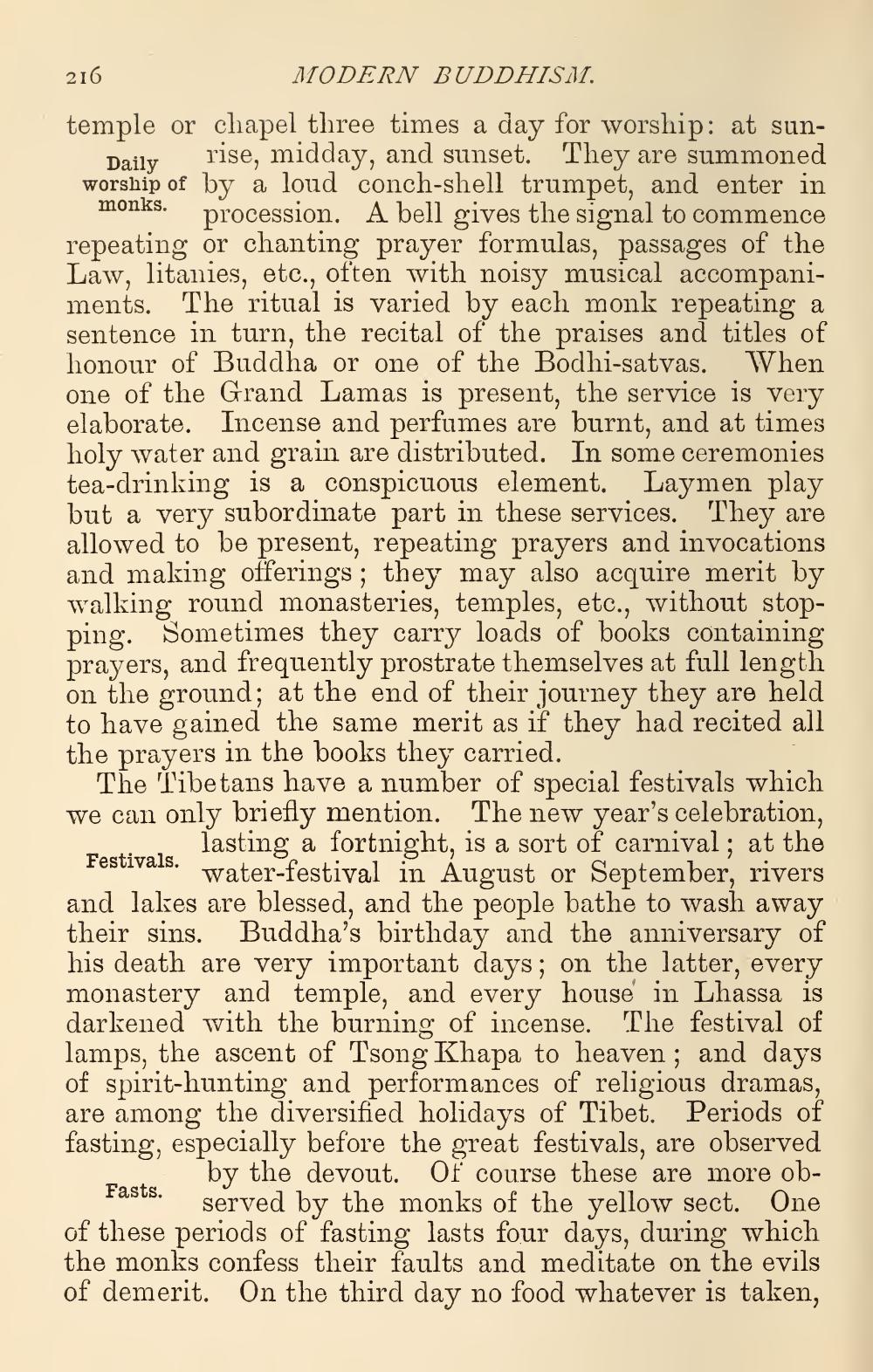________________
216
MODERN BUDDHISMI. temple or chapel three times a day for worship: at sun
Daily rise, midday, and sunset. They are summoned worship of by a loud conch-shell trumpet, and enter in
monks. procession. A bell gives the signal to commence repeating or chanting prayer formulas, passages of the Law, litanies, etc., often with noisy musical accompaniments. The ritual is varied by each monk repeating a sentence in turn, the recital of the praises and titles of honour of Buddha or one of the Bodhi-satvas. When one of the Grand Lamas is present, the service is very elaborate. Incense and perfumes are burnt, and at times holy water and grain are distributed. In some ceremonies tea-drinking is a conspicuous element. Laymen play but a very subordinate part in these services. They are allowed to be present, repeating prayers and invocations and making offerings; they may also acquire merit by walking round monasteries, temples, etc., without stopping. Sometimes they carry loads of books containing prayers, and frequently prostrate themselves at full length on the ground; at the end of their journey they are held to have gained the same merit as if they had recited all the prayers in the books they carried.
The Tibetans have a number of special festivals which we can only briefly mention. The new year's celebration,
lasting a fortnight, is a sort of carnival; at the Festivals.
water-festival in August or September, rivers and lakes are blessed, and the people bathe to wash away their sins. Buddha's birthday and the anniversary of his death are very important days; on the latter, every monastery and temple, and every house in Lhassa is darkened with the burning of incense. The festival of lamps, the ascent of Tsong Khapa to heaven; and days of spirit-hunting and performances of religious dramas, are among the diversified holidays of Tibet. Periods of fasting, especially before the great festivals, are observed
by the devout. Of course these are more obFasts. served by the monks of the yellow sect. One of these periods of fasting lasts four days, during which the monks confess their faults and meditate on the evils of demerit. On the third day no food whatever is taken,




